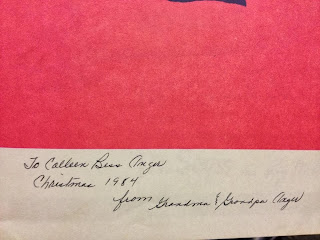I did a thorough exam, including a full forensic examination, extra-oral and intra-oral, full periodontal analysis (6 point perio probings on every tooth recorded, furcations, mobility, etc., just like we were taught in dental school), and more. We showed digital radiographs and intraoral photos on a chairside monitor, which allowed me to provide more relevant feedback.
Before I started the exam (but after listening to his story), I told Jim that I would answer three questions when we had completed our examination: What needs to be done now to eliminate sources of infection? How often should we see him in the future to maintain health? And, to avoid surprises, what dentistry might need to be done in the future?
He had a mouthful of large amalgam fillings and a couple of older crowns with some marginal inflammation. His home care was excellent and the previous dental office ensured that there were no periodontal pockets or signs of deeper infection. Other than professional hygiene, he did not need any other dentistry right now. He was happy with that news.
With marginal inflammation around a lot of dentistry, we recommended regular six-month hygiene visits. We would monitor things every time he came, and compare the results with today’s recordings to see if things were changing. He agreed with this recommendation, as he had been used to this frequency and had committed to it before. Indeed, after a couple of years, his inflammation changed. We took new intraoral photographs, and showed them to him. He agreed to increase his hygiene frequency to every four months.
As for the long-term, his teeth were greatly compromised by the size of his old amalgam fillings. The photographs really showed this clearly, and he understood it. I told him what the plan was, in broad terms. It involved cores and crowns, possible endodontic therapy, and a more thorough bite analysis to ensure long-term comfort and function.
I told Jim that the teeth were not infected right now and that he had three choices for treating these teeth. He could do all of it now, some of it now, or none of it now, but it would all have to be done eventually. Jim understood what had never been told to him before. But he was newly married, with kids and a big mortgage; investing in his mouth was not something he could do, even with financing. He elected to leave things for now and treat teeth as they needed to be treated.
Given my philosophy that people have the right to control what happens to their body, I agreed to his choice and told him we will keep him apprised of his oral situation as he returns for his periodontal health maintenance visits. We also explained the risk of not treating his teeth at this time, and he accepted those risks.
We had listened to him. We had earned his trust. We provided a thorough examination and comprehensive treatment plan so he knew his future oral health needs. As time went on, his children grew and his mortgage was reduced, and our trust and relationship grew. He kept asking us how his fillings were doing. We updated our photos and measurements regularly to show him the changes occurring. We asked if he was ready to proceed with long-term dentistry and reminded him of the risks of not treating them (like reminding a smoker of the risks of not quitting, but without the dire consequences. The worst that can happen here is some teeth might be lost).
Finally, one day, the inevitable happened. He broke a molar. Unfortunately, the crack extended into the furcation and the tooth’s prognosis was hopeless. It was removed. He admitted that we had told him this could happen and accepted the reality of the treatment. This was his turning point. He decided it was time to invest in his long-term oral stability, and we proceeded with comprehensive treatment, one quadrant at a time, spread over a two year period.
We were given two ears and one mouth, presumably so we could listen as much as we speak. In Jim’s case, we listened and in time, as our relationship grew and trust was built, he was ready to listen to us.
It was a satisfying completion to long-term patient relationship-building. It also reinforced to my team the value of the relationships we have worked hard to build and maintain with our patients and with each other.
And now, it’s back to the grind…
Warm regards,
Larry Stanleigh, DDS





